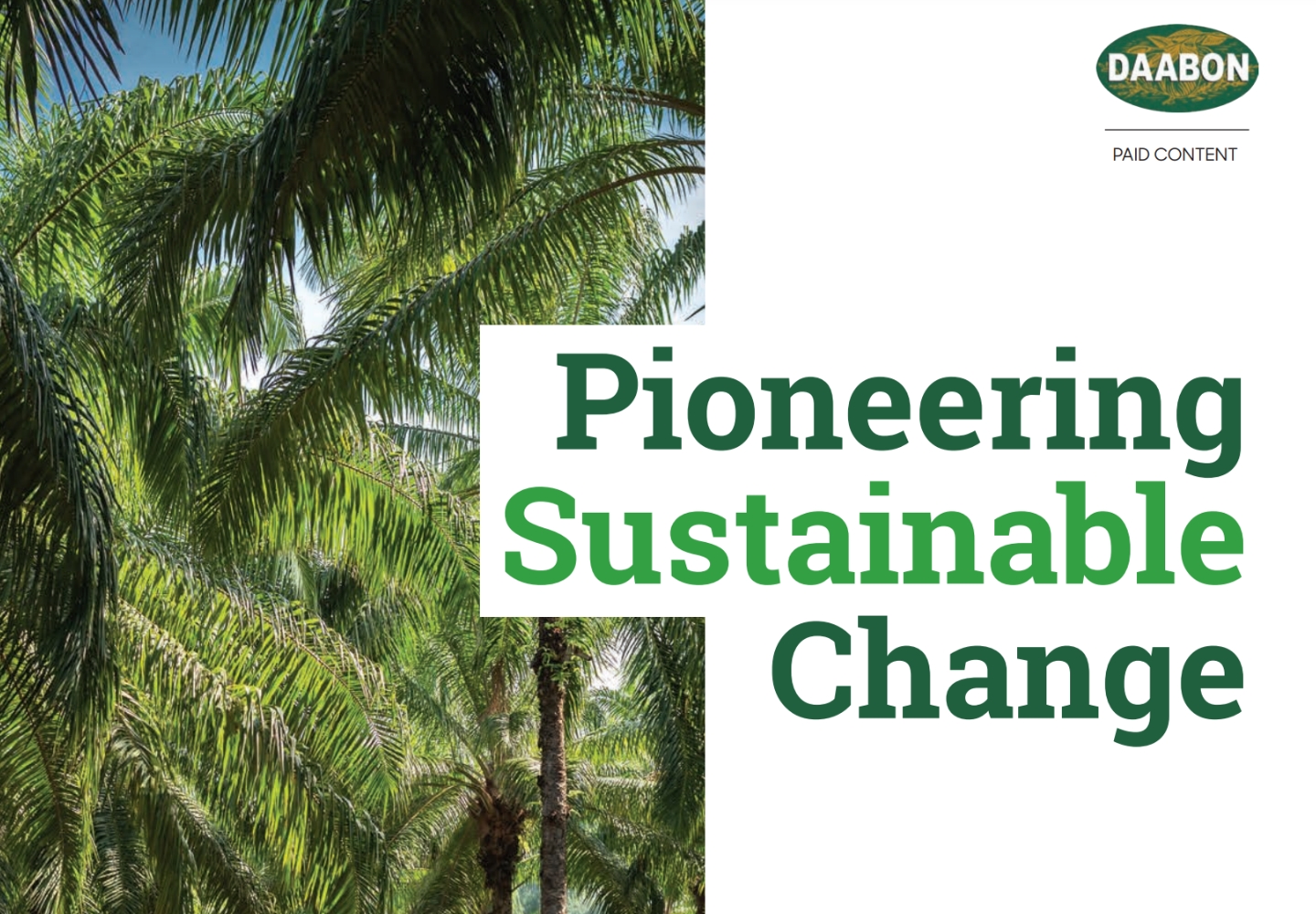Circular Economy
Creating a Circular Economy
Daabon, a 100-year-old family-owned company, has produced organic and sustainable palm oil in Colombia for over two generations. “Sustainability is respect for all forms of life. Working with nature, and never against it,” says Patricia Apreza, Director of Social Management at Daabon. As a leader in the sustainable palm movement, sustainability isn’t just a buzzword for Daabon—it’s woven into the very fabric of the business. Creating a circular business model was a natural step towards living the company’s values.
Circular supply chain
People often quote Kate Krebs, the former Director of The National Recycling Coalition, for saying, “Waste is a design flaw; the ability to create circularity of all materials eliminates waste and builds a sustainable world.” This is true. Daabon understands what a circular supply chain can do and the company’s proprietary, vertically integrated production process is one of its standout sustainability measures, designed never to let waste become waste.
Starting at the farm level, every aspect of Daabon’s business is within its control. This type of traceability allows the company to have complete oversight to ensure that sustainability measures are upheld throughout every step of the production process. Conversely, it provides full transparency to customers and stakeholders about the company’s operations.
As a part of Daabon’s renewable energy and carbon neutrality goals, the company’s Clean Development Mechanism (CDM) project captures methane gas produced at Daabon’s extraction mill as a result of the organic waste created during the palm oil extraction process. Wastewater from this process is deposited in larger pools, which are then covered with tents to generate methane and capture it for fuel to run Daabon’s industrial infrastructure. This mill allows Daabon to create a new, green energy source that can be used to power other aspects of the production process. This recapture plant helped the company reach its goal of being carbon-neutral across every element of its global supply chain in 2015.
At the production mill, any plant matter from the palm milling process that cannot be used in a commercial product is turned into animal feed and fertilizer for the palm trees. The mill captures and treats wastewater from production, turning the methane gas into renewable biofuel to power 85% of the business’s operations.
Sustainability in action
Caring for the environment is a necessary step in Daabon’s sustainability processes. As Manuel Davila, CEO of Daabon, puts it, “Our goal is not just to stop doing damage to the environment, but to actively improve the health of our native ecosystems and the planet as a whole.” To do this, Daabon has implemented essential sustainability guidelines for the company:
- Protecting the land. Daabon’s operations are entirely deforestation-free, meaning they only farm on previously cleared land. Peatlands, the natural carbon sinks that traditional palm farming often destroys, are never disturbed in Daabon farming.
- Protecting animals. Traditional palm farming often disrupts native animal habitats. Because of Daabon’s deforestation-free operations, habitats for native animals are not harmed or disrupted during the farming process.
- Third-party certifications. While some certifications are simply fluff, Daabon meets and exceeds the standards for its reputable, third-party certifications. Daabon proudly holds USDA organic, Fair Trade Certified, Gold Level Regenerative Organic Certified® (ROC™) and Roundtable for Sustainable Palm Oil (RSPO) certifications.
Why does a responsible supply chain matter?
A circular supply chain is more than simply a sustainable supply chain. Contrary to the traditional, linear supply chain where manufacturers discard products or materials as waste, a circular supply chain is a specific choice that converts traditionally wasted materials within the supply chain into new products. This way everything across the supply chain is usable or serves a purpose.
Consumers today are looking for sustainable products, and businesses are following suit. Brands that use palm oil in production can win consumers’ good graces by committing to more sustainable production, whether as part of Environmental, Social and Governance (ESG) initiatives, brand stewardship or simply meeting consumer demand for sustainable products. By choosing to use ingredients such as organic palm oil in products and calling attention to these sustainable ingredients, can help consumers understand that they can enact change through their choices and that sustainable palm oil is a choice they have.
As a sustainable palm oil industry leader, Daabon has committed to green technologies and creating a circular economy within its supply chain. From farm to finished product, Daabon’s dedicated sustainability measures shine through, and its positive changes are a testament to the company’s success.[/vc_column_text][/vc_column][/vc_row]






